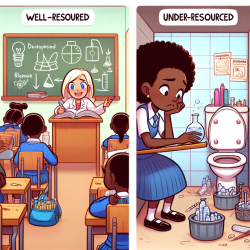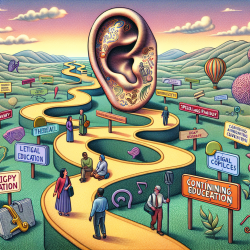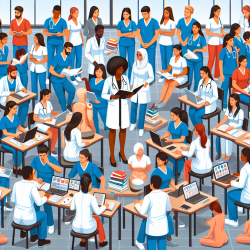Understanding the Impact of Menstrual Management Inequities in Nairobi Schools
Menstrual hygiene management (MHM) is a critical component of educational success for girls. However, in the informal settlements of Nairobi, Kenya, girls face significant challenges in managing menstruation at school due to physical, social, and political inequities. A recent study titled Physical, Social, and Political Inequities Constraining Girls’ Menstrual Management at Schools in Informal Settlements of Nairobi, Kenya highlights these issues and provides insights into how practitioners can improve outcomes for these students.
The Core Challenges
The study reveals several key challenges that girls face in managing menstruation at school:
- Inadequate Access to Sanitary Products: While public schools in Nairobi receive government-provided menstrual pads, the supply chain is unreliable. Private schools do not receive these supplies, leaving girls to manage without adequate resources.
- Insufficient WASH Facilities: Many schools lack adequate water, sanitation, and hygiene (WASH) facilities, which are essential for menstrual management. The pupil-to-toilet and pupil-to-water-point ratios are far from the national guidelines, exacerbating the problem.
- Social and Religious Barriers: Muslim girls face additional challenges due to the design of toilets that do not accommodate religious practices such as ablution. This limits their ability to manage menstruation effectively.
- Harassment and Lack of Information: Girls experience fear and anxiety due to harassment from male peers and have incomplete information about menstruation from teachers, which affects their ability to manage menstruation confidently.
Implications for Practitioners
Practitioners working in education and health sectors can take several steps to address these challenges:
- Advocate for Reliable Supply Chains: Ensure that menstrual products are consistently available in both public and private schools. This may involve working with government and non-governmental organizations to improve supply chain reliability.
- Improve WASH Facilities: Advocate for better WASH facilities in schools, including adequate toilets and water points. Facilities should be designed to accommodate religious practices and ensure privacy and safety for girls.
- Provide Comprehensive Education: Develop and implement educational programs that provide accurate and comprehensive information about menstruation, hygiene, and reproductive health.
- Address Social Norms: Work to change social norms that contribute to harassment and misinformation. This may involve engaging with community leaders, teachers, and students to foster a supportive environment for girls.
Encouraging Further Research
While this study provides valuable insights, further research is needed to explore the long-term impacts of menstrual management inequities on educational outcomes and to develop effective interventions. Practitioners are encouraged to collaborate with researchers to gather data and implement evidence-based solutions.
To read the original research paper, please follow this link: Physical, Social, and Political Inequities Constraining Girls’ Menstrual Management at Schools in Informal Settlements of Nairobi, Kenya.










